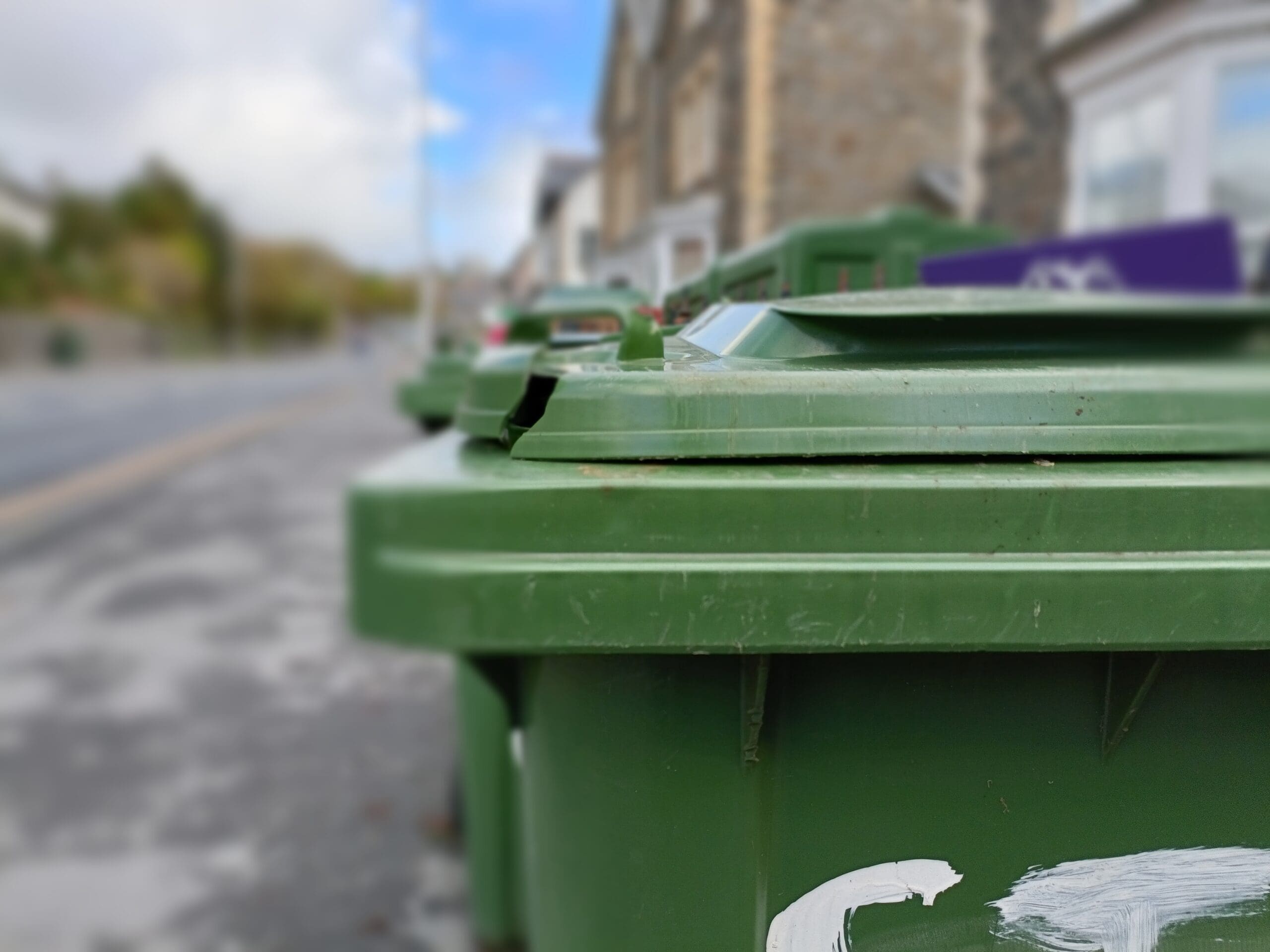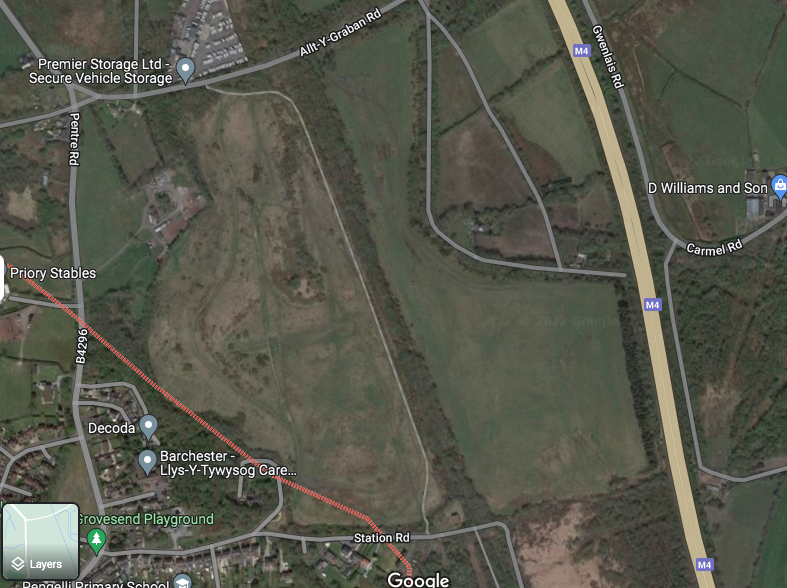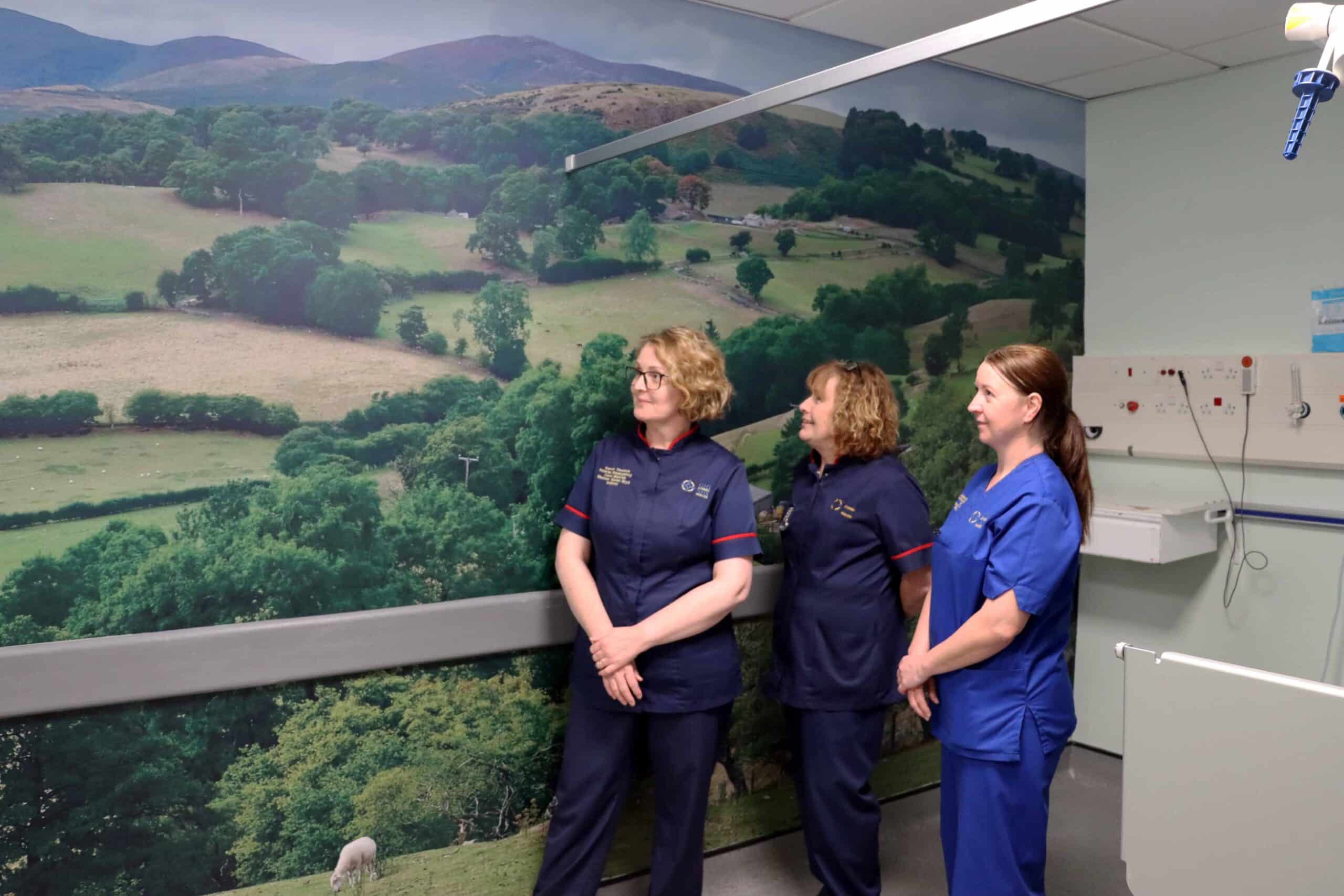Refuse staff will start delivering the new containers to householders across the county – a process which will take a while – in the coming months.
Chris Howell, head of waste, cleansing and parks, told a council committee that the Welsh Government had provided funding for the new lidded containers. “It’s great news,” he said.
An estimated 10 million green plastic bags are currently used by residents in Swansea each year. While these are filled with stuff which gets recycled – helping to boost Swansea’s recycling and composting rate over 70% – the bags are only used once.
Mr Howell also said that garden waste collections could potentially stop in December and January following a recent trial. With gardens dormant in these two months there is little to collect, so the impact on residents would be limited. Refuse staff who normally collect this waste could be redirected to other types of collections.
It also emerged that Swansea has put itself forward as a council keen to trial the kerbside collection of plastic film, cartons – including Tetrapak ones – textiles and potentially small electrical items.
Wales’s 22 councils are expected to recycle and compost 70% of their municipal waste by 2024-25, and Swansea achieved that ahead of schedule in 2022-23. A report before the climate change and nature recovery service transformation committee said Swansea also had the most cost-effective waste collection service, based on Welsh Local Government Association data.
Cllr Stuart Rice said he welcomed the phasing out of green plastic bags but felt more focus was needed to ensure kerbside waste was collected on time, as late collections often meant spilled rubbish which had to be cleaned up. He said: “At the moment in certain areas of the city it’s just not working – it needs to be improved.” He also asked if food waste could be turned into a fertiliser.
Mr Howell said he believed the current collection system was fit-for-purpose but that vehicle breakdowns and staff absence sometimes caused delays. He added that he hadn’t had time to look into the food waste-to-fertiliser idea but that he would.
Black bag waste in Swansea used to end up at Tir John landfill site, Port Tennant, but now the site has closed most of it is taken by road and incinerated at an “energy-from-waste” facility out of the county.
Food waste is taken to a site near Bridgend where it, along with Bridgend Council’s food waste, is turned into biogas – a renewable form of energy – with the liquid leftover used by local farmers to improve the soil.
Garden waste, meanwhile, is taken to Carmarthenshire where it breaks down into compost. Some of this compost is bagged and returned to Swansea. Cllr Sara Keeton, recalling the time when this was done at Tir John, said she felt this was a missed opportunity for Swansea. Mr Howell said: “You need to have a certain scale to do it effectively.”
Cllr Cyril Anderson, cabinet member for community, said he expected fewer refuse vehicle breakdowns following the delivery of five new vehicles last week, with a further 12 due by the end of June.
Please donate here: Support Carmarthenshire News Online Thank you for supporting independent journalism and contributing to the future of local news in Carmarthenshire. Carmarthenshire News Online has been dedicated to providing unbiased and trustworthy news, free from commercial or political influence. By donating as little as £1, you can help ensure the continuation of this important source of information for the community. Your contribution will have a significant impact on the sustainability of independent journalism. If you're looking to enhance your brand's visibility, we also offer advertising opportunities on our Livestream and podcasts. Our special offers provide excellent value for reaching our engaged audience. To learn more about these opportunities and to discuss your advertising needs, please feel free to call or text us at 07308598604. Thank you again for your support, and together we can ensure the availability of quality local news for Carmarthenshire and beyond.
Please donate here: Support Carmarthenshire News Online







